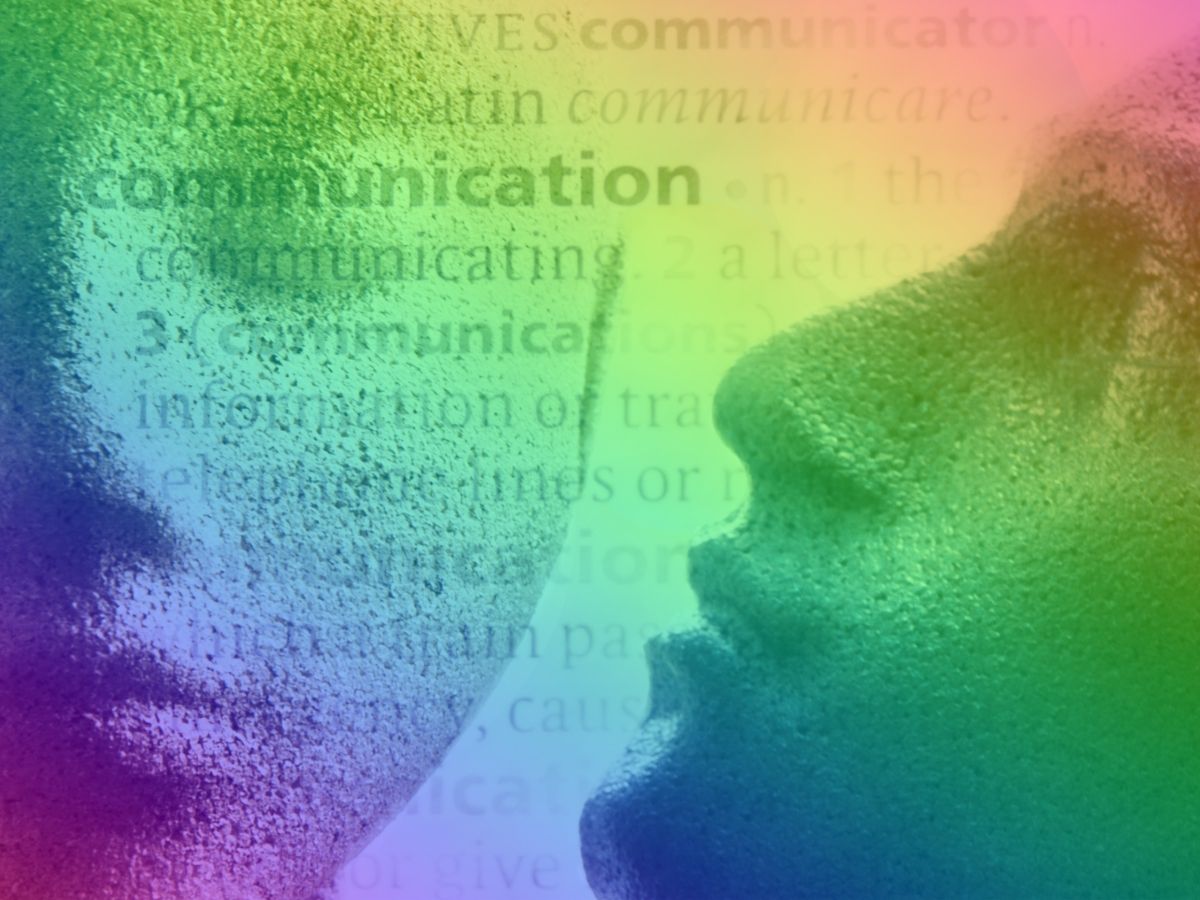READ TIME: 17m
DR JOHN DEMARTINI - Updated 3 years ago
In all probability, you have experienced or witnessed a relationship that has broken down due to ineffective communication.
What few individuals realize is that there is a powerful tool you can learn that has the potential to transform any challenging relationship into one of equity, openness, and sustainable fair exchange.
It begins with understanding your own values and the values of the other individual(s) too.
What are Values?
Regardless of age, spectrum of gender, or culture, every human being lives moment by moment by a unique set of values or priorities - things that are most to least important in their lives.
These values are fingerprint specific to each individual, and no two human beings are likely to have the same values.
The hierarchy of your values, or the things that are least to most important to you dictates who you are and your destiny.
Your ontological identity revolves around your highest values.
In my case, one of my highest values is teaching. If you were to ask me, “Who are you” ontologically, I would say that I am a teacher because that’s what I am intrinsically inspired from within to do.
Click below for the video of this article. ↓
Suppose you met a woman dedicated to raising children and asked her the same question. In that case, she may say, “I’m a mother,” if that is her highest value, even though she works as an accountant.
Your ontological identity (relating to the branch of metaphysics dealing with the nature of being) revolves around what you value most.
Tell me what you value most, what’s highest on your values, what’s most important to you, and I’ll tell you your identity.
Your highest value is what you’re spontaneously inspired from within to do without fear of punishment or promise of reward. This is also the area where you will excel, expand, achieve, and stand out from the crowd.
Everyone wants to be loved and appreciated for who they are. Who they are revolves around their highest value.
When you’re in a relationship, you want to be respected, loved, and appreciated for what it is that you truly value.
I’ve asked millions of individuals in seminars around the world how many of them want to be loved and appreciated for who they are? Everybody puts their hand up.
They don’t want only to be loved for the parts of them that are nice, kind, positive, and generous – in other words, be loved for half of who they are. Instead, they want to be loved for their whole self – when they are kind and cruel, positive and negative, generous and stingy, etc. They want to be loved for all of it.
In all likelihood, you would love to be loved for both sides of who you are so you can have sustainable fair exchange with the individuals in your life.
Now, what does that mean?
If someone supports you, you tend to build yourself up. If somebody challenges you, you tend to put yourself down. When then happens, you develop exaggerated or minimized masks or personas that oscillate around the real you.
When you’re proud, you tend to be narcissistic, want others to live in your values, and expect to receive something for nothing.
When you’re humbled, shamed, and minimizing yourself, you’re more likely to sacrifice for others, almost altruistically, giving them something for nothing.
As an example, think about someone you have been infatuated with. You likely feared their loss, which made you sacrifice what was important to you to try to fit in to what was important to them. You probably reached a moment when it was no longer sustainable and began resenting them.
- If you exaggerate someone and minimize yourself, that’s not your authentic self.
- If you minimize someone, try to get them to live in your values, and exaggerate yourself, that’s not your authentic self either.
Nature tends to give feedback to help guide you back to the center where you are neither minimizing nor exaggerating yourself so you can be loved for who you truly are.
If you get cocky, you tend to be criticized to bring you back down. As the old saying goes, pride comes before a fall.
In the same way, if you are humble, you tend to receive praise to lift you back up and get you back into authenticity, where you’re loved and appreciated for who you are.
Until you’re authentic, you can’t expect to be loved and appreciated for who you are.

Relationship polarities
In relationships, you have two individuals with a unique set of values, values that are fingerprint specific, trying to communicate.
Their values may be different in the sense that their highest value may be intellectual pursuits, business pursuits, wealth-building pursuits, family rearing pursuits, social pursuits, leadership roles, physical health and wellbeing, or even a spiritual quest.
Considering the full spectrum of individuals on the planet, you’re going to meet some individuals with similar values, who you may call friends, and others with very different values, who you may call enemies.
You will tend to have an impulse toward those with similar values and an instinct away from those with different values.
However, it’s been found that all human beings’ maximum growth and development is a balance of support and challenge.
If you are highly supported and praised, you may become juvenilely dependent on that person. If they challenge you, you may become precociously independent.
However, suppose you are conscious of a balance of similarities and differences in another individual. In that case, you can have love for them.
Nature is always trying to bring those into balance between the supporters and challengers in your life to keep you authentic.
Developing your communication skills
How do you navigate a relationship with someone who has a widely different set of values from you?
For example, one may be a business owner and one may be an intern, one may be a parent and the other may be a child, one may have family as their highest value and be married to someone whose highest value is running a business.
Each individual you meet will have a different set of values from you. In some cases, the gap might seem wider than in others, but it’s highly unlikely that you will ever meet someone with the same values as you.
It is wise for you to learn to master the art of true communication so you can meet in the middle as equals where neither side is trying to project their values onto the other.
Step 1:
Identify your top three highest values and those of the other individual.
If you’ve never taken the time to identify their highest values, you will not fully know them.
If you don’t know what they’re dedicated to, what’s most inspiring to them, and what they’re most fulfilled by, you’re unlikely to know what their life is really about.
Identifying your and their unique set of values and highest priorities is crucial in communication.
You can visit my website and go through the FREE, Value Determination Process to determine your values first and then apply the same process to determine theirs.
Note, when it comes to determining values, it is wise to do it again every few months to get an idea of what your life is most consistently committed to and what your life demonstrates as being most important to you over time. Your set of values can evolve over time.
Step 2:
Take the top three most important priorities and values in THEIR life and the top three most important values in YOUR life, and ask this question:
“How specifically is what they’re dedicated to, what’s most important to them, what they’re inspired by, what they spontaneously do, what their life revolves around - how is that helping ME fulfill what I AM dedicated to, what’s most inspiring to me and what’s priority to me?”
Suppose you don’t see how what they’re dedicated to is serving you. In that case, you’ll be proud of your own values because everyone thinks their values are correct and project your values onto them.
You’re likely to have a monologue as you talk down to them and try to get them to change.
They, in turn, are likely to feel resistant and become defiant, resulting in conflict.
Here’s why.
Anytime you have someone trying to project their values onto you by saying you should do this, ought to do this, are supposed to do this, have to do this, need to do this, or must do this, there’s likely to be a part of you that resists because you want to be loved for who you are.
You are unlikely to want to live under other individual’s imperative projections.
And so if you can’t see what they’re dedicated to is serving you, you’re likely to want to change them so you can get what you want because there’s a tendency to want to surround yourself with individuals who support your values and avoid individuals who challenge them.
That’s not the wisest way to grow.

You need both challengers and supporters, but your brain’s natural primitive subcortical amygdala tendency is to avoid predators and seek prey.
So you tend to have a desire to be proud and be right and avoid challenges. But what that does is make you talk down to others and have a monologue where they’re listening, and you’re speaking, which challenges them, their natural primitive amygdala comes online, and they become self-righteous and resistant.
As such, they may begin puffing themselves up and talking down at you, which results in another monologue while they’re speaking and you’re not listening, and you speaking while they don’t listen. This is called an alternating monologue where no one hears what the other person says.
However, when you know WHAT their highest values are and HOW they serve you and help you fulfill what’s most important to you, you’re able to be grateful for them, appreciate them, and feel love for them because you can see how they’re assisting you in fulfilling your life.
That doesn’t mean that they have to have similar values to yours; it just means that whatever they have as higher values, you can see how their highest values help you fulfill yours.
Respect is a perfect balance of praise and reprimand, where you see both sides.
Remember, if you infatuate with someone, you tend to see similarities.
If you resent someone, you tend to see differences.
When you can see similarities and differences and support and challenge equally, you can maximize your growth and feel love for them.
Step 3:
It is wise to take it a step further and ask this question:
“How specifically is what I’m dedicated to, my top three highest values, what is most fulfilling and meaningful to me, helping them fulfill their own unique top three values?”
Suppose you initially believe are unable to answer this question. In that case, you are unlikely to be able to articulate what’s important to you in terms of what’s important to them, which is when they will listen closely.
You may puff yourself up and speak down to them and try to get them to change and live congruently with your values instead of their own.
Like sales training where you are taught to communicate with others in their dominant buying motive and according to their needs, all communication is a form of sales.
In some respect, you’re selling what’s important to you in terms of what’s important to them.
And if you help them get what they want in life, they’ll tend to feel inspired to give you what you want in life.
When you can see how what they’re doing is serving you and how what you’re doing is serving them, this most often creates a dialogue.
Taking the time to find out how what they’re dedicated to is serving you and how what you’re dedicated to is serving them is extremely invaluable.
There are no two value structures between two individuals that can’t be linked.
I’ve experienced individuals in the middle of a divorce, individuals with extreme opposite values who acted like they wanted to kill each other almost, only to calm down and have a meaningful dialogue having gone through the above process.
When you take the time to ask and answer the above questions, the respect level goes up because you can see that no matter what it is, whether it’s supportive or challenging, it is serving you.
Once you can see how what they’re dedicated to is serving you, you create a space for true dialogue and a more respectful and intimate relationship to occur.
An intimate relationship is when you’re not looking down on someone and being too proud to admit what you see in them is inside you; nor are you looking up to someone and being too humble to admit what you see in them is inside you. Instead, you’re looking across at them and realizing that what you see in them is inside you.

In other words, you both have something of equal value and are communicating that value in terms of what they value.
These are just some of the questions I teach in my signature two-day program, the Breakthrough Experience, that I run almost every week. This methodology is called the Demartini Method, which is a goldmine for helping individuals respect and appreciate each other.
Step 4:
Another question from the Demartini Method is:
“What specific trait action or inaction do I perceive this individual displaying or demonstrating that I admire most or despise most?”
- If you admire them and put them on a pedestal, you’ll minimize yourself in relation to them.
- If you despise them, you’ll tend to be too proud to admit it and exaggerate yourself in relation to them.
Both of those make it difficult for fair communication to take place.
It is wise to take the time to identify the traits that you admire and despise. Then you look within yourself and identify where and when you display or demonstrate those same behaviors in your own way and value systems.
I’ve gone through this process with hundreds of thousands of individuals and I am certain that you will always find an example of a time when you have behaved in the same way.
You don’t admire or despise individuals unless they remind you of some part of you that you’re too humble or too proud to admit you have.
When you identify it, you level the playing field by realizing that they don’t do anything that you don’t also do. As such, it calms down the judgment and increases the dialogue.
The Demartini Method is exceptionally powerful in helping you ask questions to neutralize any emotional baggage. You are then free to link your values and change the dynamic of your relationship communication.
To sum up:
- Regardless of age, the spectrum of gender, or culture, every human being lives moment by moment by a unique set of values or priorities - things that are most to least important in their lives.
- Everyone wants to be loved and appreciated for who they are. Who they are revolves around their highest value.
- In relationships, you have two individuals with a unique set of values, values that are fingerprint specific, trying to communicate.
- How do you navigate a relationship with someone who has a widely different set of values from you?
- Step 1: Identify your top three highest values and those of the other individual. You can complete the FREE Value Determination Process on my website to identify your values and encourage them to do the same. Alternatively, learning to identify your own highest values will help you more easily learn to identify the highest values of others.
- Step 2: Take the top three most important priorities and values in THEIR life and the top three most important values in YOUR life, and ask this question:
“How specifically is what they’re dedicated to, what’s most important to them, what they’re inspired by, what they spontaneously do, what their life revolves around - how is that helping ME fulfill what I AM dedicated to, what’s most inspiring to me and what’s priority to me?”
- Step 3: It is wise to take it a step further and ask this question:
“How specifically is what I’m dedicated to, my highest top three values, what is most fulfilling and meaningful to me, helping them fulfill their own unique top three values?”
- There are no two unique value structures between two individuals that can’t be linked.
- Sustainable fair exchange is what everybody is striving for. It’s an equitable position to be in and allows you to open your heart so you can be loved and appreciated for who you are because you’re loving and appreciating others the way they are.
Are you ready for the NEXT STEP?
If you’re seriously committed to your own growth, if you’re ready to make a change now and you’d love some help doing so, then click on the LIVE chat button bottom right of your screen and chat to us now.
Alternatively, you can book a FREE Discovery call with a member of the Demartini Team.
Interested in the Breakthrough Experience seminar?
If you’re ready to go inwards and do the work that will clear your blockages, clarify your vision and balance your mind, then you’ve found the perfect place to start with Dr Demartini at the Breakthrough Experience.
In 2 days you’ll learn how to solve any issue you are facing and reset the course of your life for greater achievement and fulfillment.
Click HERE to find out more
Important Notice:
The content shared in this blog is for education and personal development. It is not intended to diagnose, treat, cure, or prevent any psychological or medical conditions. The information and processes shared are for general educational purposes only and should not be considered a substitute for professional mental-health or medical advice. If you are experiencing acute distress or ongoing clinical concerns, please consult a licensed health-care provider.
Read full disclaimer HERE









